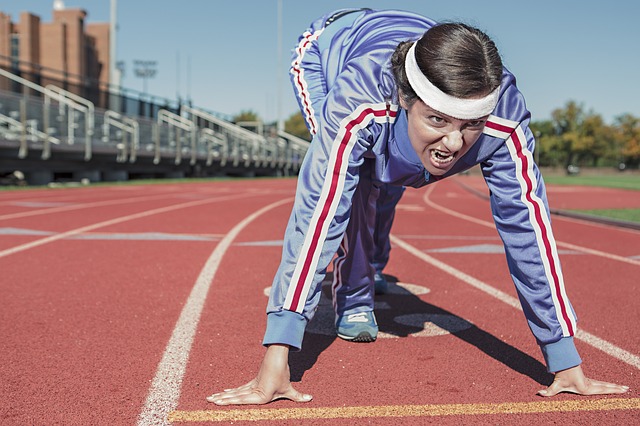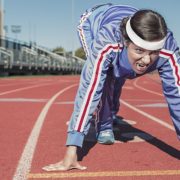Who Wins the Diet-versus-Exercise Longevity Debate? Let’s Call It a Draw.

It’s nice to be back from my two-week writing sabbatical. I doubt I’ll do that again – I hope the rust isn’t apparent with this first article of 2023.
I got some pushback from a few readers on my 12/6/2022 post (see here) in which I claim diet to be the biggest determinant of a longer, healthier life.
Exercise, they claim, is more important than diet.
My argumentive side is inclined to invoke the Jim Fixx story to illustrate otherwise. You remember him – the guy credited with helping start America’s fitness revolution by popularizing the sport of running. Fixx claimed that diet mattered not if you exercised enough. He was a 240 lb, two-pack-a-day smoker before he became a runner. Despite losing 70 pounds, Fixx continued with a marginal diet, espousing that it didn’t matter what he ate.
He died of a heart attack at 52 after a morning run. The three main arteries leading to his heart were almost completely blocked with plaques, and his other arteries were filled with plaques as well.
But wait, why argue –
-over two things that both contribute to healthy longevity? How ’bout we avoid either-or thinking and go with both-and?
I’ve revealed my hand on what I think is most important. But let’s look at the arguments in favor of the other side.
Here’s a quote from a young man I follow on Medium.com, Gunnar De Winter:
“The closest thing we have to an anti-aging pill is not some fancy supplement, but physical activity. Exercise keeps your blood, your brain, and everything in between young, down to the (epi)genetic level.”
But what is the optimal level of exercise. That’s where it gets interesting – and challenging for us generally sedentary second-halfers.
You might want to sit down for this:
An article in Springer Open addresses “optimal” exercise for longevity, stating the following: (the bolding is mine):
Regular physical activity (PA) represents the most important lifestyle component associated with cardiorespiratory fitness, healthy aging and longevity. In order to induce general health benefits, public health guidelines recommend, beside strength and balance exercises, at least 150–300 min of PA at moderate aerobic intensity or 75–150 min at vigorous intensity per week [1, 2]. Much more engagement in PA, however, is necessary to achieve maximal benefits on longevity [3]. For instance, a large prospective cohort study demonstrated maximal longevity gains at about 700 min of moderate or 350 min of vigorous PA per week [4]. The accomplishment of this objective is challenging in particular when considering that even minimal PA recommendations are difficult to achieve in the aging populatio
Raise your hand if you can get motivated to find 100 minutes a day for moderate exercise or 50 minutes a day for vigorous exercise.
It’s a tall order for all of us. But the benefits are well documented.
My unassailable weekly exercise regimen amounts to about 550 minutes/9.2 hours of combined vigorous and moderate exercise. It seems like a lot until you think of it as a % of your week:
9.2/168 = 5.4% of my week.
I don’t find 5% to be much of a sacrifice in order to feel good and mostly pain-free every day and enhance the chances of putting more years in my life along with more life in my years.
Borrow 11% of average TV viewing time.
Ken Dychtwald’s research for his book “What Retirees Want” A Holistic View of Life’s Third Age” revealed that the average retiree in the U.S. spends 49 hours watching television.
If exercise is, in fact, the most important thing we can do to live a longer and healthier life, it wouldn’t seem to be too great a sacrifice to rechannel a bit of that sedentary habit into moderate or vigorous exercise.
I don’t think twice about 5% of my week going to exercise because it’s so ingrained as a habit I started nearly 40 years ago.
If it ain’t on the calendar (mental or physical) it ain’t gonna happen. It never leaves my mental calendar.
I know vigorous exercise isn’t for everybody in my cohort. I’m still waiting for another octogenarian to join me in the deadlift area at Lifetime Fitness.
It’s never too late to start, but always too early to quit.
There’s no arguing that statement.
Nor is there logic in arguing which is best – diet or exercise.
Let’s table the argument and max out with both.
What’s your exercise regimen look like? What works for you? What can we learn from you about how you come down on diet versus exercise? Leave a comment or drop a note to gary@makeagingwork.com. If you haven’t joined the Makeagingwork tribe, trip on over to www.makeagingwork.com and sign up to receive a free article each week on the topic of successful aging, longevity lifestyle planning, and health & wellness for folks over 50.





I agree entirely with the 700/350 min of exercise being an eminently achievable ROUTINE. I have my daily one-hour fairly intense workout (barring injuries, illness or other obstacles) built in to my day. It’s a trail run, an MTB ride or, if I’m feeling lazy/injured, it’ll be an admitably (shorter) swim. But I also do multi-hour hikes at least once a week, along with gentle beach walks. I generally feel strong, fit, healthy and good. I push my intense exercise hard enough so that generally I’m ‘running from injury to injury’ although most of my injuries these days tend to be little accidents (sprained ankle etc). Once this exercise becomes a HABIT (perhaps read up a few books on how to FORM habits), then actually it is quite easy to settle into it. (I’ve been doing it for the past 30+ years, staring when I was 30.) Please note: I must still EVERY SINGLE TIME push myself to overcome my natural laziness to actually go out, but all I need to do is to vizualize the feeling of enjoyment during and after my exercise.
Note: I mostly exercise by myself (gives me a great mind/headspace to think to – almost meditative), but if you’re starting out and/or are a more social creature, you won’t cut it/keep it up unless you train in a group/club/team environment.
Two other comments: Fixx is just one unhappy counter-example out of 100s of millions of positive examples. He likely had a genetic pre-disposition. So on “your” debate of diet-vs-exercise, I would definitely rank exercise as more important. But then I DO like my chocolates. Exercising a lot actually makes you crave healthier foods. But I do think it also allows you to ‘cheat’ a bit more. However, IMHO doing a 2 km walk does NOT AT ALL JUSTIFY you having a coke, fries, and donut afterwards.
Jean-Paul, I relate to the “little accidents”, typically when I get a bit too enthusiastic about a new “personal best” on a weight machine or free weight. Love your routine, attitude, and commitment. Thanks for sharing it with us.
Great article, Gary. Healthy eating is already a habit, as long as I have chocolate every now and then. Just sayin’. Getting back into exercise after a series of injuries and illnesses is proving challenging, but is so important. And – I will do it.
Thank you, Margaret – and for your comments on the repost of this on LinkedIn. Sorry to hear of the illnesses and injuries but glad you are working through it and getting back at it.
That was a great read Gary.
I was about to side with that reader on exercise. I do believe that it is the most rejuvenating habit you could take on.
However, reading your nuanced perspective and arguments, I think you may be right that a better diet is more doable for most people than regular exercise.
And in the Blue zones – areas of the world where people live disproportionally older and healthier – there is no such thing as exercise.
They do move daily though: walk a lot, don’t rely on cars, garden, take stairs etc. They have an active life.
But they most certainly don’t go to the gym.
So, that may be another argument for your side of this question.